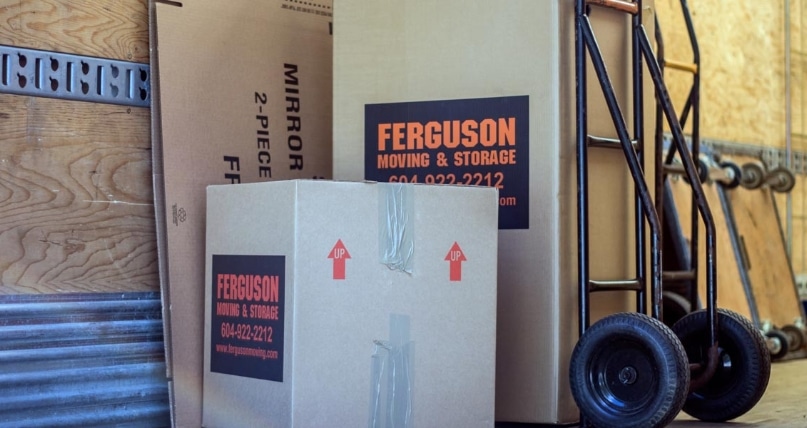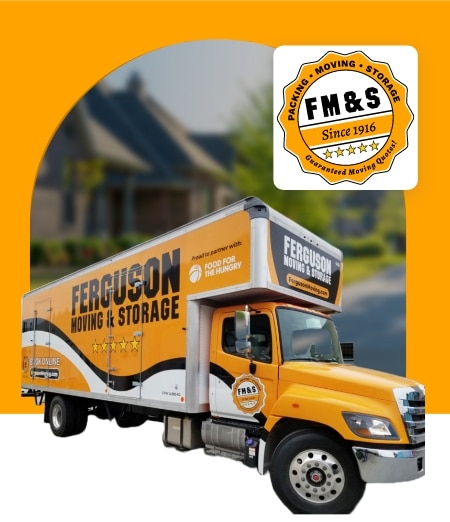- BC Mover Locations, Relocation Moving
What To Know About Moving To A Hobby Farm In Rural B.C. Areas

If you’re thinking of moving away from city life to a rural area in B.C., you may want to consider a hobby farm. Moving to a hobby farm in B.C. is possible, since you can buy acres of land specific to the needs of farmers – even within Metro Vancouver.
However, there are things to know about moving to a hobby farm in B.C. Even if you think you already have a green thumb, or a good understanding of animals, a hobby farm can entail more than the joy of organic food, rural life and part-time homesteading.
Before we get started on the things you should know about moving to a hobby farm, be sure to check out our following articles which can complement this topic:
- Where to move for groundwater access in B.C
- Fishing Licenses and Regulations When you Move to BC
- How to move a compost when doing a short distance move
Understand how the government classifies hobby farms in B.C. and Canada
This is important because it can affect your taxes. A hobby farm is not meant for producing income, though it can. You’ll need to know when you are producing enough income from your farm that it could count as a commercial enterprise. Here is a document that defines this more:
Then, the article below explains the way one family had to fight for their farm status, proving the initial assessment wrong. They were able to recover taxes as a result. Their case is important to learn how farms, or farms-to-be are classified and taxed in B.C., whether or not you’re not planning on starting a commercial enterprise:
The following website also has a page devoted to farm assessments, including for specific products, like equestrian or medical marijuana farms. It also has info on leasing land to farm:
And, read the next article below about what you can deduct when you operate a farm, and under which circumstances:
- https://www.farmstart.ca/your-money-full-time-part-time-or-hobby-farmer/
Know how much moving to a hobby farm in B.C. will cost you
Hobby farms, again, are not businesses. They are mainly for enjoyment, your own benefit, and perhaps to serve some neighbourhood purpose. You can sell food from a hobby farm, and you can eat your hobby farm food. But you shouldn’t expect it to meet all your nutritional needs or income requirements.
That said, when you start a hobby farm, there will be upfront costs that you may not recover as an ‘investment’ per se, such as when starting a commercial farm operation.
So you need to be aware of what it costs not just to buy land, animals and agricultural products. You need to also consider the costs of tractors, mowers, fencing, water consumption, upkeep, vet and health costs and perhaps hired hands to help you when you can’t devote your time to it. You can’t just go on vacation and expect your animals to feed themselves, no matter how wild you think they are! Farm animals are domesticated; they need humans to survive.
The Financial Post article below breaks down the long term costs of moving to a hobby farm for retirement, and is an excellent read for what you should expect when planning your finances for such a venture:
As the article above states, you may want to turn the hobby farm into something that can become taxable, or a tax deduction to account for losses. That means producing enough for yourself, and to sell. This is in accordance with an article we linked to above.
The other thing to consider is the re-sale value of your hobby farm, and the home upkeep of the shelter you’ll live in on the land. This Australian-based article explains more about it, and the financial considerations associated with a hobby farm (the principles of which still apply to B.C. residents):
Find good land for your hobby farm in B.C.
If you plan on starting a hobby farm from scratch, instead of buying into one that others are selling, you’ll need to find a good patch of land. While you may normally think of agricultural land being more common in areas like Chilliwack, or the interior of B.C., keep in mind that Metro Vancouver cities also have farm lands you could move to.
In fact, the ‘farm status’ is becoming controversial in places like Richmond, where mega mansions are being built on what should be farm land. But since the sales requirements for farm income are so low, people can get away with using the land’s spaciousness for non-farming enjoyment, and as a tax loophole.
Here is an article on that issue:
To find good hobby farm land to move to, try this company website, which is dedicated to real estate for farming:
There are also real estate sites like this one for Abbotsford. They are dedicated to particular areas.
You may also want to check out our article on saving money on real estate agents when you want to sell or buy. This is because there may be other avenues of finding property when you want to start your lifestyle farm. Here is the link:
Know what it takes to operate and move to a hobby farm
Like we mentioned above, moving to a hobby farm means commitment. You need know what you’re getting into. How to choose your animals, how to handle crops, how to keep records, where you want to live…it can all affect your lifestyle in the long run.
Here is an article on thespruce.com, which links to more resources on this topic:
To conclude: do your research before moving to a hobby farm
Moving to a hobby farm is no small feat. It may pay off in terms of letting you enjoy a lifestyle you’ve always wanted to live. But if you’re accustomed to city dwelling, paying strata fees to have someone else take care of maintenance, or simply haven’t lived rural life before, you may be in for a shock. Hobby farms don’t just involve the love of the farm; the finances and bookkeeping need to be kept in check as well. You’ll also have ongoing costs related to upkeep that you may not have thought of. And your land choice can affect you in the long run, especially if you decide hobby farming is not for you, or if you outgrow it. You’ll want land that can be resold easily. In short: do your research!
If you need help moving your belongings to small farm in B.C., especially in or around Metro Vancouver, give us a call! We’d be happy to help!

Categories
Moving Tips

This is the heading
Lorem ipsum dolor sit amet, consectetur adipiscing elit. Ut elit tellus, luctus nec ullamcorper mattis, pulvinar dapibus leo.

This is the heading
Lorem ipsum dolor sit amet, consectetur adipiscing elit. Ut elit tellus, luctus nec ullamcorper mattis, pulvinar dapibus leo.
We make moves easy for you.
- Local Moving
- Long Distance Moving
- Seniors Moving
- Piano Moving
- Item Relocation
- Overnight and Long-term Storage
- Packing Supplies





